The decisive factor for the success or failure of the second real estate tax policy
Real estate prices in Vietnam not only “dance” in the market, but also “change” on paper and books. When the numbers are inconsistent, it will be difficult to effectively tax second real estate.
 |
| More and more people are owning second homes. (illustrative photo) |
Early construction of national database on real estate
The second real estate tax still has many opinions about tax rates, applicable subjects, scope of influence... However, there is one issue that most businesses and experts agree on, which is the need for a national database on the real estate market. This will be the deciding factor in the success or failure of the tax policy and needs to be prioritized.
Dr. Tran Xuan Luong (National Economics University) affirmed that without a market database system, tax policies will not be effective, even causing social imbalance and instability.
“Transparent data from the State will be the basis for objective and accurate real estate valuation, from which new taxation will target the right subjects and achieve the goal of regulating the market,” Mr. Luong stated his opinion.
This expert also emphasized that a country that wants to manage its economy must have a database system of information on people's income and assets. This has been implemented for a long time in the world.
Building a national database on the real estate market will be the deciding factor in the success or failure of the second real estate tax policy.
“To realize the national database system on the real estate market, the simultaneous participation of many ministries and branches is required. This is not only the responsibility of the Ministry of Construction, but also the task of the General Statistics Office (Ministry of Planning and Investment), the Ministry of Finance, the Ministry of Natural Resources and Environment…”, Mr. Luong added.
Dr. Nguyen Tri Hieu, Director of the Institute for Research and Development of Global Financial and Real Estate Markets, also said that real estate valuation in Vietnam still has many shortcomings. If the standard price cannot be determined, taxation is almost impossible.
Similarly, Mr. Tran Vu, Business Director of DHCONS Construction Joint Stock Company, stated that the top priority that ministries and branches need to implement is to build a national database system on the real estate market. Not only does it affect tax policy, it is also a fundamental factor that determines the feasibility of a series of other regulations, including the land price list - a "problem" that is causing headaches for the real estate industry.
“The national database on the real estate market can be considered a ‘project of the century’. If completed, Vietnam will be one of the few Southeast Asian countries to be able to do so,” Mr. Tran Vu asserted.
Struggling to collect data
According to Mr. Nguyen Tri Hieu, in Vietnam, the contract price and the actual transaction price are two different numbers “like heaven and earth”. This is the complete opposite when compared to the US - where information about selling prices is almost impossible to “cook”.
“When Americans borrow money to buy a house, insurance companies and appraisers will carefully research the legality and value of the property. The data will then be provided to the bank for further verification, and then the disbursement step. After going through so many filters, it is very difficult to falsely declare the house price,” said Mr. Hieu.
In case people buy a house with available money, that individual must declare to the tax authority. This unit will send someone to re-evaluate the value of the real estate to ensure that the tax is paid correctly and fully.
Basically, in real estate transactions in the US, there is always a third party that records and determines the value independently. This both prevents price fraud and helps update information for the national database system.
In Vietnam, collecting market information, especially selling prices, is the most difficult challenge in completing the national database. Even businesses with many years of experience in land valuation find this a difficult task.
Sharing a real story, Mr. Ngo Gia Cuong, Director of Vietnam Valuation and Inspection Company Limited (VAI) said that in the secondary market, most of the prices stated on the contract are always lower than the actual value and lower than the land price list. This is a way for sellers to reduce financial obligations, specifically personal income tax.
When the numbers recorded on the contract are mostly “virtual”. The sources of collecting and providing market information are only a few channels such as the Land Registration Office; units and organizations conducting land use rights auctions; units and organizations auctioning assets; trading floors, real estate businesses, etc.
In reality, information sources on real estate prices can only be collected from the Land Registration Office. However, these units have not digitized data, so the search is mainly manual, and the staff is mostly experienced. Therefore, the processing takes a lot of time and has many potential errors.
Mr. Vo Anh Tuan, Deputy Director of the Department of Land Registration and Information Data (Ministry of Natural Resources and Environment) said that as of September 2024, the land database built by the Central Government has completed 4 component data, including data on land price framework. As for localities, currently only 300/705 district-level units have completed the construction of the land price database.
Commenting on the progress of building a land database nationwide, Mr. Tuan said that the information system has not been completed and has not met the requirements as directed by the Government.
Previously, the Government issued Resolution No. 37/NQ-CP, stating the goal of completing the construction of a digital database and a national land information system that is centralized, unified, synchronous, multi-purpose and interconnected by 2025.
A second real estate tax would contribute to building a healthy, stable and transparent market. This is difficult, but not impossible, if the foundation is built on a national database.
Source: https://baodautu.vn/batdongsan/yeu-to-quyet-dinh-su-thanh-bai-cua-chinh-sach-danh-thue-bat-dong-san-thu-hai-d226742.html





![[Photo] General Secretary To Lam arrives in Minsk, begins state visit to Belarus](https://vphoto.vietnam.vn/thumb/1200x675/vietnam/resource/IMAGE/2025/5/11/76602f587468437f8b5b7104495f444d)

![[Photo] General Secretary To Lam meets and expresses gratitude to Vietnam's Belarusian friends](https://vphoto.vietnam.vn/thumb/1200x675/vietnam/resource/IMAGE/2025/5/11/c515ee2054c54a87aa8a7cb520f2fa6e)
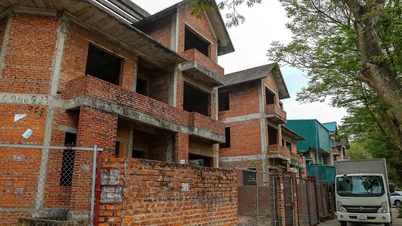







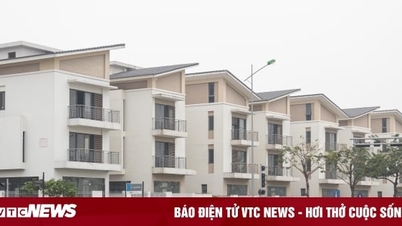


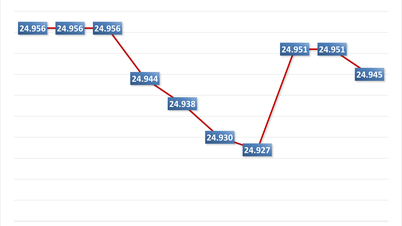
















![[Photo] General Secretary To Lam concludes visit to Russia, departs for Belarus](https://vphoto.vietnam.vn/thumb/1200x675/vietnam/resource/IMAGE/2025/5/11/0acf1081a95e4b1d9886c67fdafd95ed)











































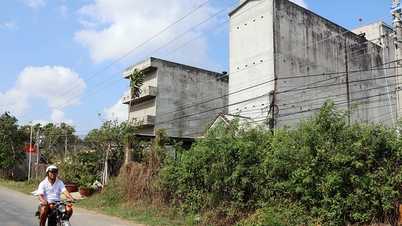



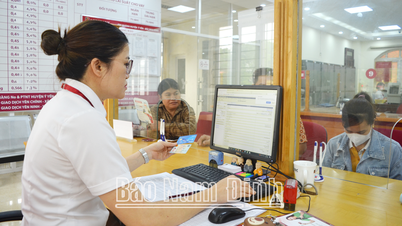





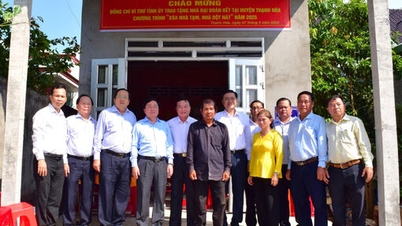











Comment (0)